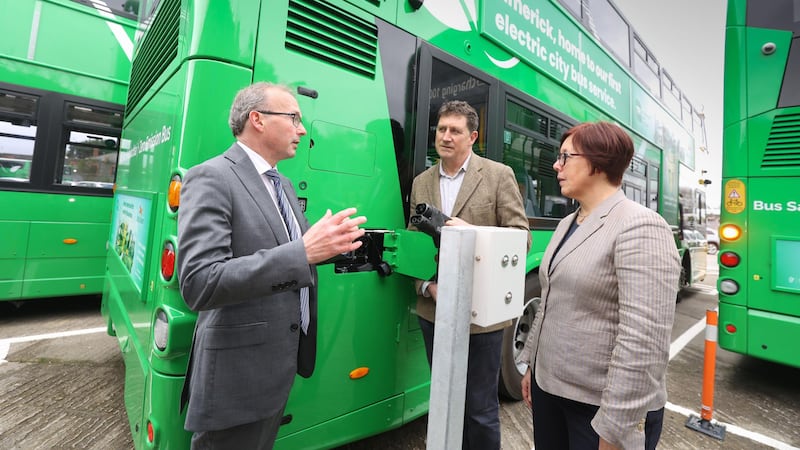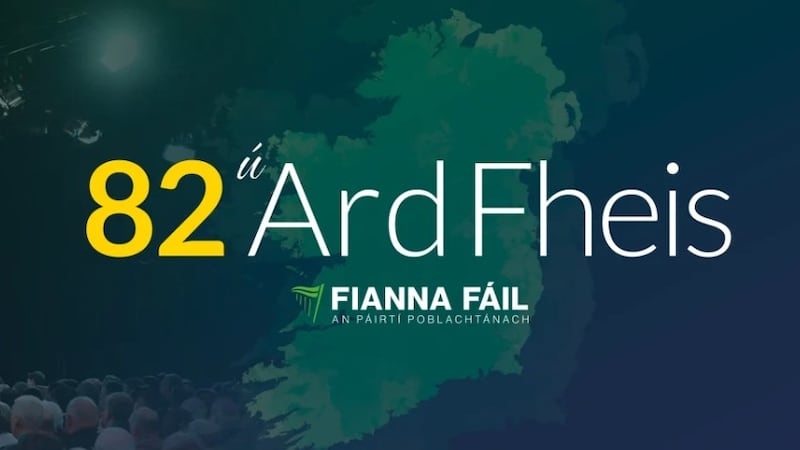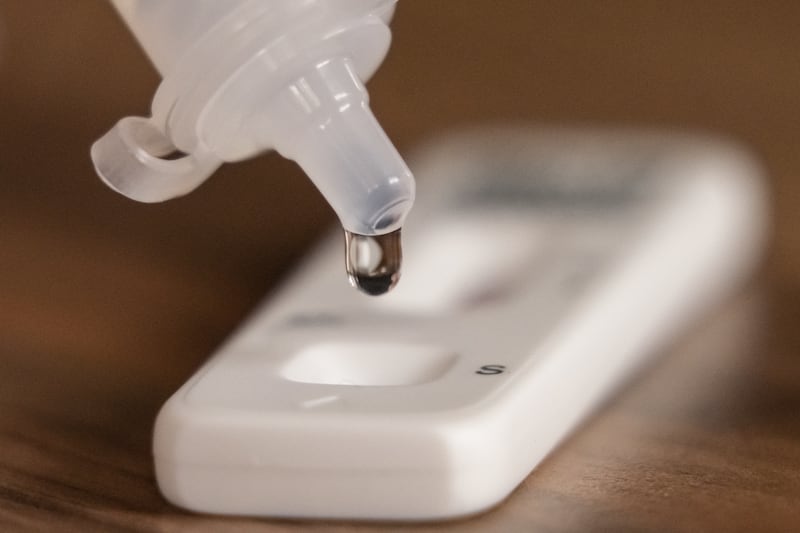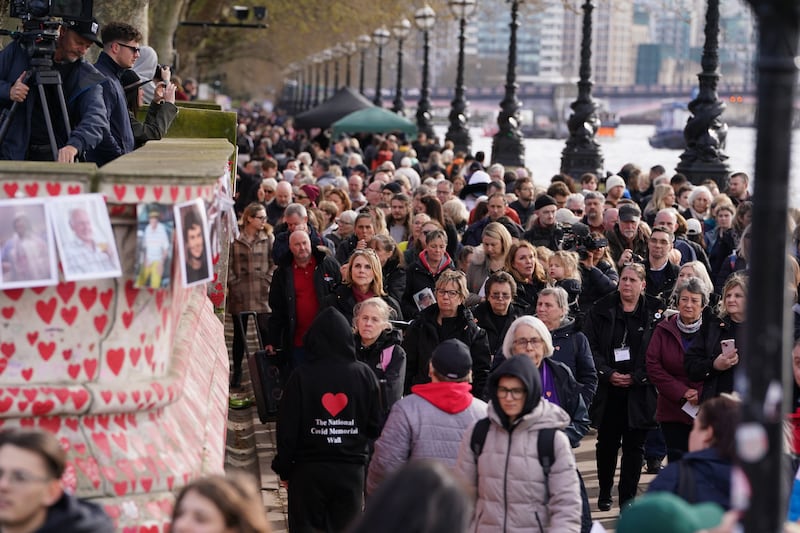More than 1,000 Irish scientists have called on the governments north and south to completely suppress Covid-19 and not just be content with keeping it under control.
As both sides of the border begin to reopen, Ireland’s leading scientists warned in an open letter: "this is a decisive moment in the history of our island."
“Our current policy is to live with the virus under a long-term mitigation strategy, with the risk of future surges and lock-downs until when, or if, a vaccine becomes available.”
However, a vaccine will take at least two years, and there is no established treatment, the letter adds.
"We have another option: we can do as many other countries have done, choose to suppress and eliminate this virus -‘Crushing the Curve’."
Countries who have halted the virus include New Zealand, Australia, Austria, South Korea, Greece, China and Iceland, by continuing public health measures.
This includes the use of masks, active fast contact tracing and testing, and restrictions on travel.
The open letter has so far attracted more than 1,000 signatures from Irish scientists.
Read the full open letter:
Ireland and COVID-19 – a choice
Because of a timely response the island of Ireland has managed to bring the COVID-19 epidemic under control. A range of emergency restrictions imposed by the two Governments, following scientific advice, stopped our healthcare systems being overwhelmed and saved many lives. The public support these restrictions, and report that they clearly understood the need for them.
All this has come at a huge cost to our island. Enormous sums of money have been spent; many people have lost jobs; many businesses wonder will they be able to open again.
Now we have come to a watershed moment, a fork in our road. The path we choose will determine our future for years to come. Our current policy is to live with the virus under a long-term mitigation strategy, with the risk of future surges and lock-downs until when, or if, a vaccine becomes available. We have another option: we can do as many other countries have done, choose to suppress and eliminate this virus - ‘Crushing the Curve’.
People will once again feel confident in using public transport, returning to school, going out to eat and to shop, pressure on the healthcare system will be relieved, and trust in our economy will be restored. For the economies on our island, this would be enormously valuable. Vulnerable people will be effectively protected.
The restrictions so far have been very costly, and some argue that the job of our Governments, and our peoples, is to get back to ‘normal’ as fast as possible. What does ‘normal’ look like if the virus continues to circulate? Right now, public transport is planning for 20% of ‘normal’ capacity, pubs and restaurants 30%, schools, at best only 50%. The costs of child care, already high, will be impossible for many. Many workplaces will need expensive re-design. Many people will drop out, or be pushed out of the labour force. All of these are real costs, and will, we believe, far exceed the short-term costs of lock-down.
For these reasons we strongly encourage the two Governments to take resolute actions to suppress this pandemic at once. Eliminating the virus represents the most scientifically sound strategy in terms of public health and economics alike.
This can be done, if we all work together on the island. Several countries have already largely halted the virus, including South Korea, New Zealand, Australia, Austria, Greece, China and Iceland, by continuing public health measures, including the use of masks, active fast contact tracing and testing, and sensible restrictions on travel. All are now planned for both parts of this island, but they must be enhanced and coordinated - with the aim of achieving ambitious suppression targets.
First we must achieve suppression and elimination, and then we must maintain it. These countries have achieved suppression, and some have demonstrated that they can also maintain it in the face of new cases, as seen in South Korea in early May. Each country has developed its own solutions, to fit its own needs, and we can do the same on our joint island.
All our sacrifices over the last two months have driven down the number of cases, and given us a precious window of opportunity that we must not squander. This is a decisive moment in the history of our island.
Our goal now must be to suppress the number of new cases to zero as soon as possible, and to keep them there. Given political leadership, an agreed and scientifically sound strategy, and cooperation from our citizens - this can be done, and done in weeks, not in months. When we reach this goal, new infections have to be closely monitored for the foreseeable future under a robust, rapid, and vigilant test/trace/isolate infrastructure.
If we decide to live with the virus, extensive, and expensive, restrictions will continue for the foreseeable future. A vaccine will take at least two years, and there is no established treatment.
Societies that have suppressed and eliminated this pandemic will enjoy considerably greater freedoms and prosperity than those where the virus persists. Travel, tourism, and trade with other successful countries would be straightforward and beneficial. Given our geography, population size, and social cohesion, suppression is a realistic exit strategy, a genuine way out of our current economic and social standstill. We propose that the two Governments on the island of Ireland immediately adopt a full-scale policy of suppression, and start working on a suitable strategy for both our countries.
Yours sincerely,
Professor Anthony Staines; Epidemiologist, Dublin City University
Professor Gerard Killeen; Infectious Disease Ecologist, Epidemiologist and Control Specialist, University College Cork
Dr Tomás Ryan; School of Biochemistry & Immunology, Trinity College Dublin and Chair of FENS-Kavli Network
There have been over 1,000 signatories to date, including:
Prof. Luke O’Neill; Professor of Biochemistry, Trinity College Dublin
Prof. Cliona O’Farrelly; Professor of Comparative Immunology, Trinity College Dublin
Prof. Sam McConkey; Infectious Disease Specialist, Vice-Dean, Royal College of Surgeons in Ireland
Prof. Jane Ohlmeyer; Director of Trinity Long Room Hub Arts & Humanities Research Institute, Trinity College Dublin; and Chair of Irish Research Council
Prof. Kingston Mills; Professor of Experimental Immunology, Trinity College Dublin
Prof. David McConnell; Fellow Emeritus in Genetics, Trinity College Dublin
Dr. Lydia Lynch; Immunologist, Trinity College Dublin and Harvard Medical School
Dr. Maitiu O’Tuathail; GP and Head of National Association of General Practitioners (NAGP)
Dr. Hilary McLoughlin; Consultant Respiratory Physician
Prof. Ivan Perry; Professor of Public Health, University College Cork
Dr. Mary Rose Sweeney; Head of School of Nursing, Dublin City University
Dr. Clare Kelly; Associate Professor of Psychology, Trinity College Dublin
Prof. Walter Cullen; Professor of General Practice, University College Dublin
Dr. Sheila Mulvey; Consultant Obstetrician and Gynaecologist
Dr. Fin Breatnach; Retired Consultant Paediatric Oncologist, Crumlin
Dr. Davida De La Harpe; Retired Public Health Doctor. Former Head of Health Intelligence, HSE
Prof. Cathal Walsh; Professor of Statistics, University of Limerick
Dr. Liam O’Farrell; GP, Rostrevor Co. Down
Prof. Liam Glynn; Professor of General Practice, University of Limerick








